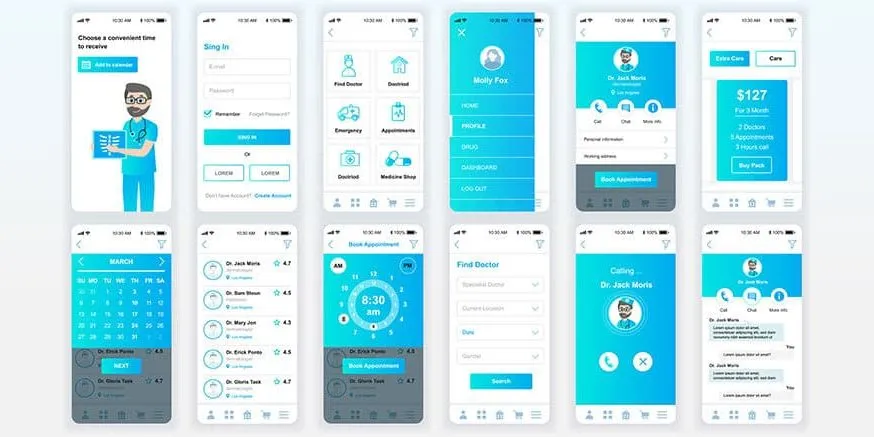Mobile apps are not a “develop it and leave it” kind of technology. You absolutely must budget for app updates and maintenance. The ever-changing tech world is continually seeing new devices and operating system versions, both of which prompt developers to take action so their application doesn’t cease functioning.
On average, the most popular mainstream apps issue anywhere from one to four updates per month, with about half a dozen major updates released each year. Of course, not every mobile app needs such frequent updates and modifications. The ideal app update frequency will vary depending upon factors such as the type of app, along with the app’s functionalities and features. In reality, there’s no single answer to the question of “How often should you update an app?” While the answer varies from case to case, let’s examine some of the reasons for performing mobile app updates and the typical frequency of such modifications.
Updating Mobile Apps in Response to OS Changes
Android and iOS devices routinely see operating system (OS) modifications due to security concerns, new hardware and device functionalities, and in response to user feedback. There are also occasional updates to add entirely new bells and whistles, but these major OS updates are relatively rare, happening anywhere from every 6 to 18 months on average.
Mobile app developers are charged with continually re-evaluating their software to ensure that it remains fully compatible and user-friendly, despite major OS updates. So once a new OS version is released, the development team must re-examine the app’s performance in that digital environment by performing a thorough round of QA testing. In addition, the app will need to be tested while running other popular apps in parallel to ensure there are no conflicts that may prompt modifications.
Mobile App Updates for New Smartphones and Devices
The most successful mobile apps can be used on virtually any mobile device, including the newest smartphones, tablets and other devices. In some cases, very few—if any—app updates are required in response to a new device release. But in other cases, unique device specs and functionalities can prompt developers to perform in-depth testing. Something as small as unique screen sizing or a new swiping capability can change the way in which apps function, resulting in glitches that may range from unsightly to downright catastrophic.
App updates that are performed in response to new devices, new hardware and updated operating systems are beyond the control of the development team. In these cases, developers must take a responsive approach to updates. But that’s not always the case. If you’re updating an app’s interface so you can add new functionality or features, then you’ll find you have much greater flexibility in terms of the timing and frequency.
Other Considerations on App Update Frequency
Developers are faced with a bit of a balancing act when it comes to releasing new app versions. Do you release a new version with fairly minimal changes or do you hold off until you have completed more bug- or OS compatibility-related modifications? Developers must consider not only the user benefits associated with a new version release but also the convenience (or lack thereof) associated with downloading and installing a new version. You want to ensure that your app is in its best possible form at all times, but you don’t want to alienate users because they’re annoyed by seemingly constant update prompts. At the end of the day, the most critical task is to update whenever you can deliver at least a few improvements or bug fixes. Overall, try to limit those new app versions to biweekly or monthly.
Notably, each niche has its own unique standards in terms of what’s acceptable for app updates, so this is a key consideration. For instance, enterprise apps that are a mandatory part of your company’s workflow can be updated weekly or even more often if necessary. In this case, the emphasis is on efficiency. Conversely, a consumer-facing e-commerce app may see updates far less often.
It’s also critical that your development team takes the time to perform a thorough round of app testing to ensure the new release is bug-free and user-friendly. There are few things more annoying than to update an app only to find that it’s glitchy and hard to use. A lack of app testing and faulty updates are likely to prompt users to hit the dreaded “uninstall” button.
At 7T, we take tremendous pride in our innovative, well-crafted apps, which are designed with a robust, user-friendly UI/UX. Our specialties include app testing and mobile security, so we know what it takes to craft a mobile app or a custom software platform that will meet your unique needs.
7T maintains its headquarters in Dallas, Texas, with regional offices in Houston, and Austin. If you’re ready to develop an app using technology such as Augmented Reality (AR), Natural Language Processing, Artificial Intelligence (AI), or other innovative technologies, we invite you to contact the team here at 7T.










